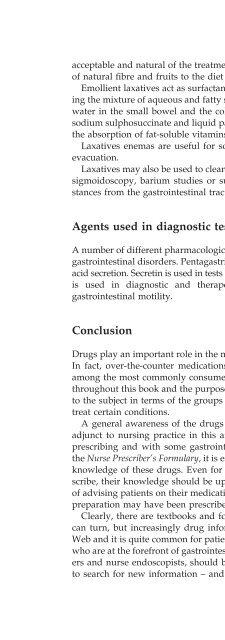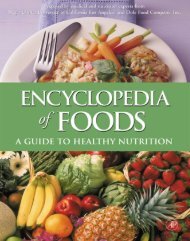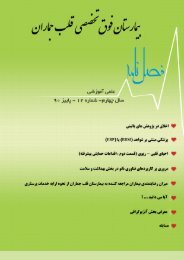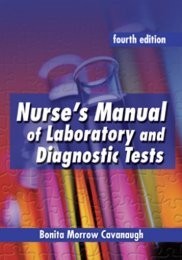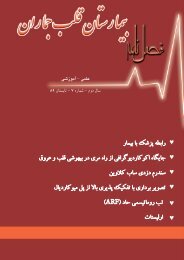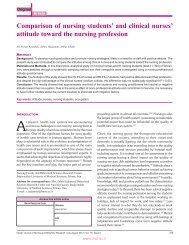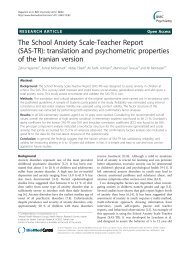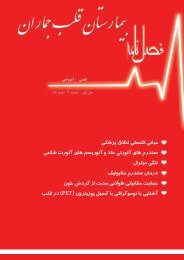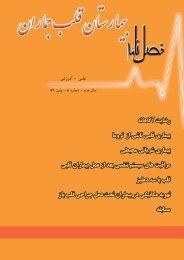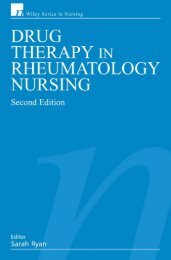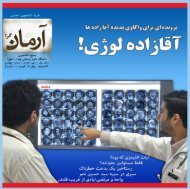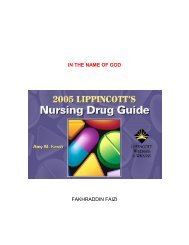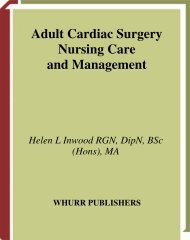Gastrointestinal Nursing.pdf
Gastrointestinal Nursing.pdf
Gastrointestinal Nursing.pdf
Create successful ePaper yourself
Turn your PDF publications into a flip-book with our unique Google optimized e-Paper software.
Pharmacology in Gastroenterology 163acceptable and natural of the treatment options for constipation. The additionof natural fibre and fruits to the diet provides a similar effect.Emollient laxatives act as surfactants that soften the faecal mass by facilitatingthe mixture of aqueous and fatty substances. They increase the secretion ofwater in the small bowel and the colon. Examples of emollients are didactylsodium sulphosuccinate and liquid paraffin. Liquid paraffin can interfere withthe absorption of fat-soluble vitamins and so is rarely used.Laxatives enemas are useful for softening impacted faeces and facilitatingevacuation.Laxatives may also be used to cleanse the bowel before colonoscopy, flexiblesigmoidoscopy, barium studies or surgery. This enables elimination of substancesfrom the gastrointestinal tract to facilitate the procedure.Agents used in diagnostic testsA number of different pharmacological agents may be used in the diagnosis ofgastrointestinal disorders. Pentagastrin (peptavlon) is used to stimulate gastricacid secretion. Secretin is used in tests of pancreatic exocrine secretion. Glucagonis used in diagnostic and therapeutic procedures, primarily to reducegastrointestinal motility.ConclusionDrugs play an important role in the management of gastrointestinal disorders.In fact, over-the-counter medications for mild gastrointestinal disorders areamong the most commonly consumed drugs in the UK. Drugs have featuredthroughout this book and the purpose of this chapter is to provide some orderto the subject in terms of the groups of drugs that are predominantly used totreat certain conditions.A general awareness of the drugs used in gastroenterology is an essentialadjunct to nursing practice in this area. However, with the advent of nurseprescribing and with some gastrointestinal system preparations included inthe Nurse Prescriber’s Formulary, it is essential that nurses are up to date in theirknowledge of these drugs. Even for drugs which nurses are unlikely to prescribe,their knowledge should be up to date as they are often in the positionof advising patients on their medication and explaining, for instance, why onepreparation may have been prescribed over another.Clearly, there are textbooks and formularies to which nurses, and doctors,can turn, but increasingly drug information is available on the World WideWeb and it is quite common for patients to access this information too. Nurseswho are at the forefront of gastrointestinal practice, including nurse practitionersand nurse endoscopists, should be able to use the World Wide Web bothto search for new information – and not just on drugs – and to update their


